DUBAI: ARTIANA has the pleasure of hosting the works of Philippine artist Dominic Rubio from March 18 to April 13 in their DIFC gallery. Featuring ten (10) artworks of the artist in his signature style, depicting Filipino characters with colossal heads and elongated necks in traditional Filipiniana set in Old Manila, the exhibition brings to the region and its Filipino diaspora; a nostalgic remembrance of home and a homage to their native country’s diverse heritage, rich history and colourful traditions.
Rubio is a successful contemporary artist, born in the 1970s in Paete, Laguna – a Lakeshore town famous for its woodcarving traditions, which conceivably gave the artist an innate sense of form. Known as a versatile artist, he is a member of the Paete Artists Group and a founding member of the Guevarra and Blumentritt Group of Artists. He started his artistic career studying and depicting ethnic themes of indigenous tribes on his canvases; and later explored the Filipiniana silhouette using a book by National Artist for Fashion – Pitoy Moreno to find his distinctive sense of artistic expression.
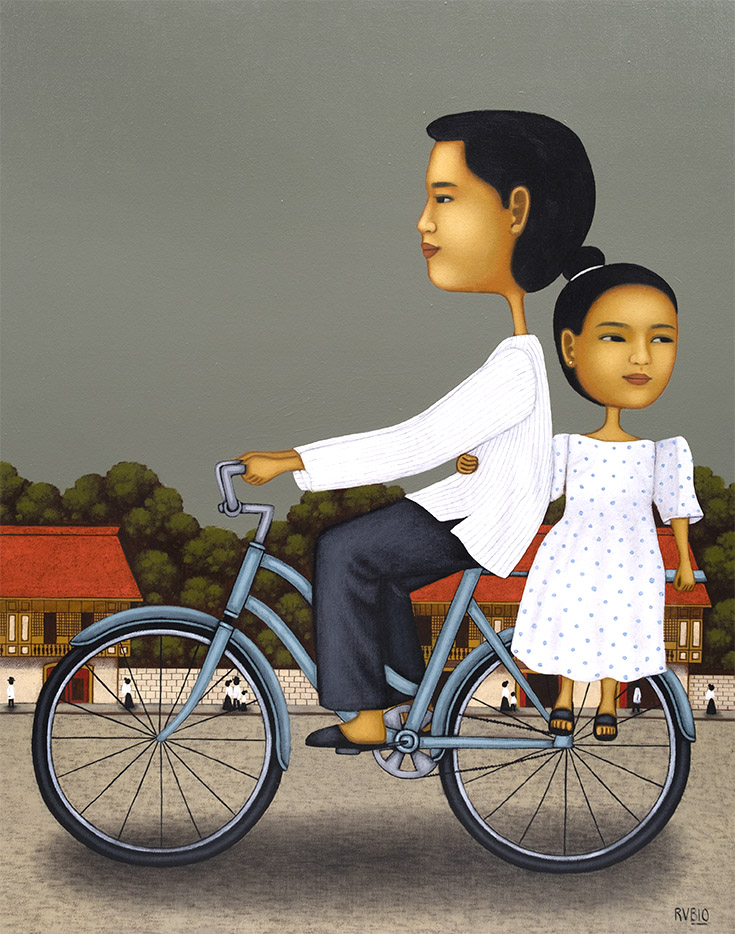
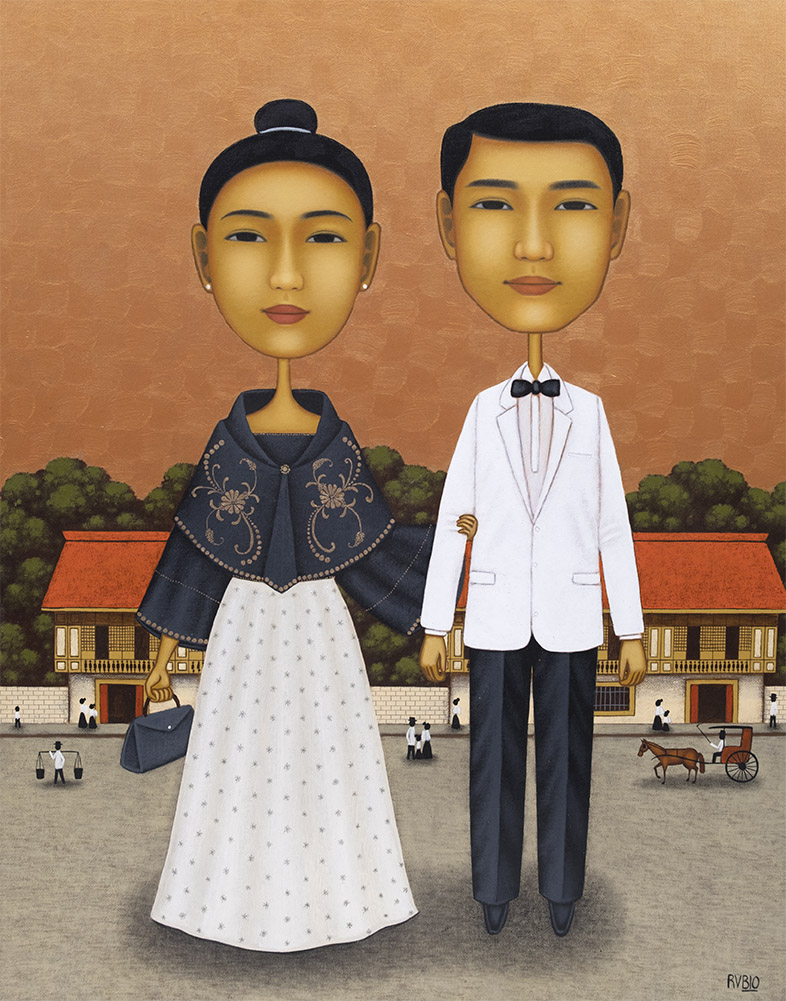
A notable show in 2003 at Galerie Joaquin explored his favourite subject of Filipino women, which was in the context of his strengthening sensibilities, as seen against the figures and faces of an earlier period at the turn of the century and a suite of updated portraits replete with glamour from the distaff side. Here his paintings evoke a traditional style of watercolour painting known as tipos del pais – a secular style popularised during the Spanish colonial period. Finally finding his unique style, this show put him on the path to prominence with the support of the gallery director and art marketing guru Jack Teotico.
Dubbed “people types,” art critics have said that with these figures, Rubio has depicted a race that can proudly hold its own in the community of nations, pointing out that “holding one’s head high” is a significant human trait – all his characters indeed do just that, whether romantic elites or labouring hoi polloi. He arrived at his conclusions only after a series of experiments. Thus, the characters – in the trademark style of Pinoy optimism – became what they are today. And the rest, as they say, is no mystery but history.
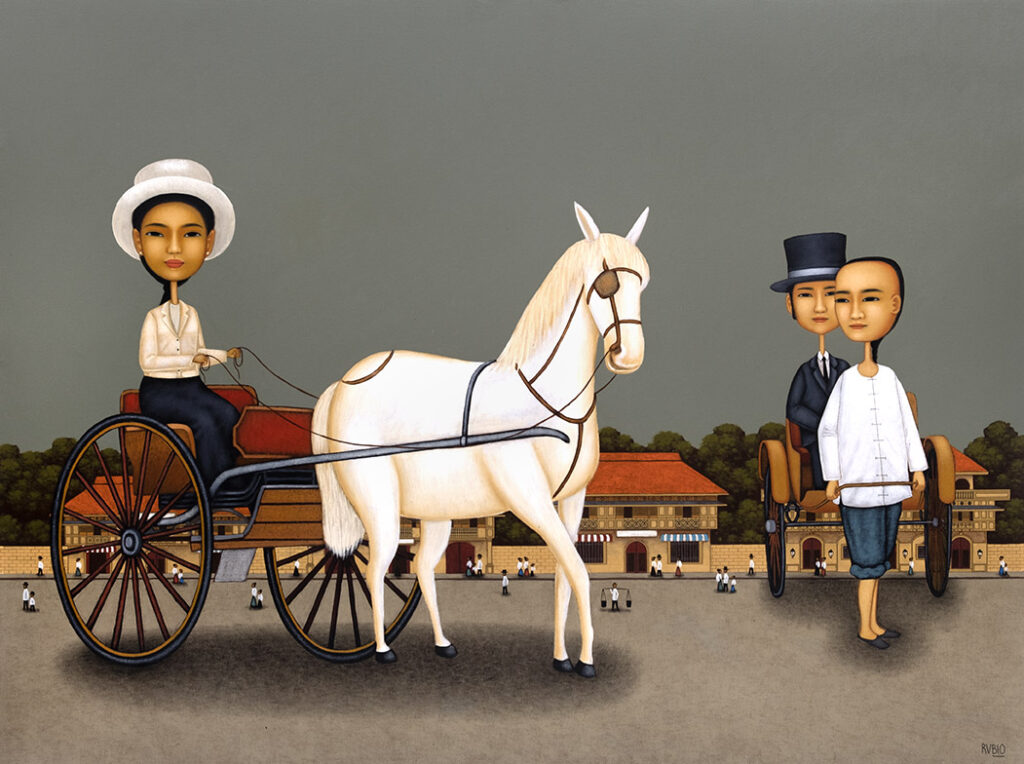
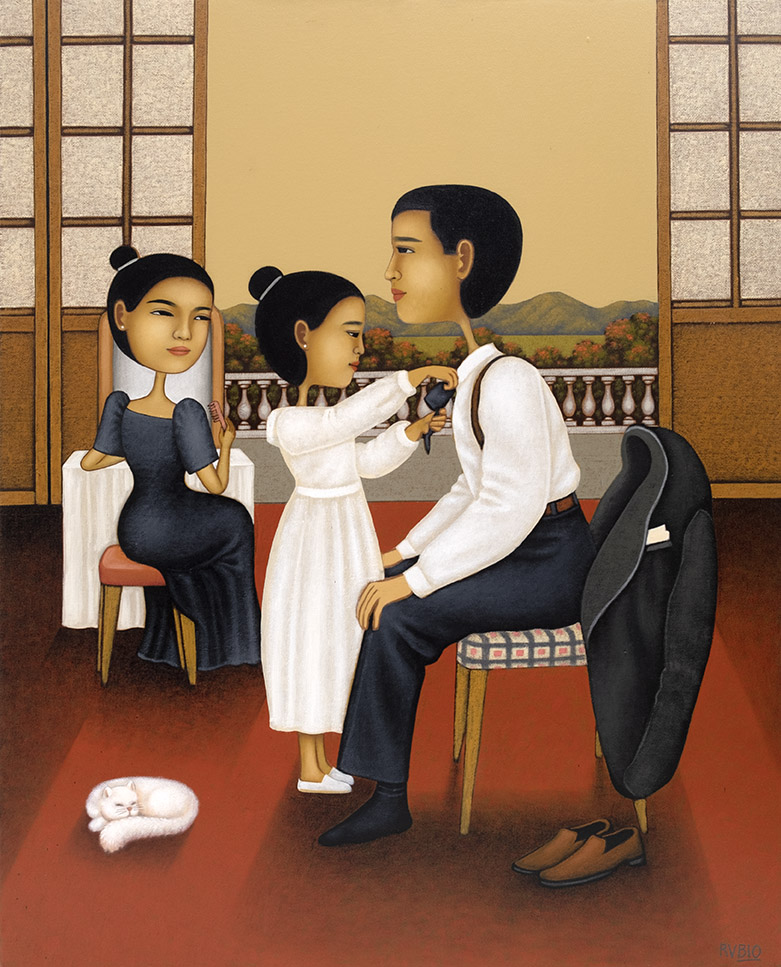
One of the most iconic Filipino contemporary artists of his time, Rubio’s works continuously sold out at various exhibitions in his native country and abroad, fetching top figures in major auction houses such as Sotheby’s and Christie’s. His mural, depicting his signature long-necked characters, is featured prominently at the Philippine Embassy in Washington D.C., marking his significance in Philippine art.
Art critic Reuben Canete perhaps has the last word on Rubio’s tremendous popularity. In his article “Dominic Rubio: Valuing Heritage, Mirroring the Self,” Canete says that the main reason for Rubio’s success lies in his capability of making his collectors and the public “see themselves” through his works.
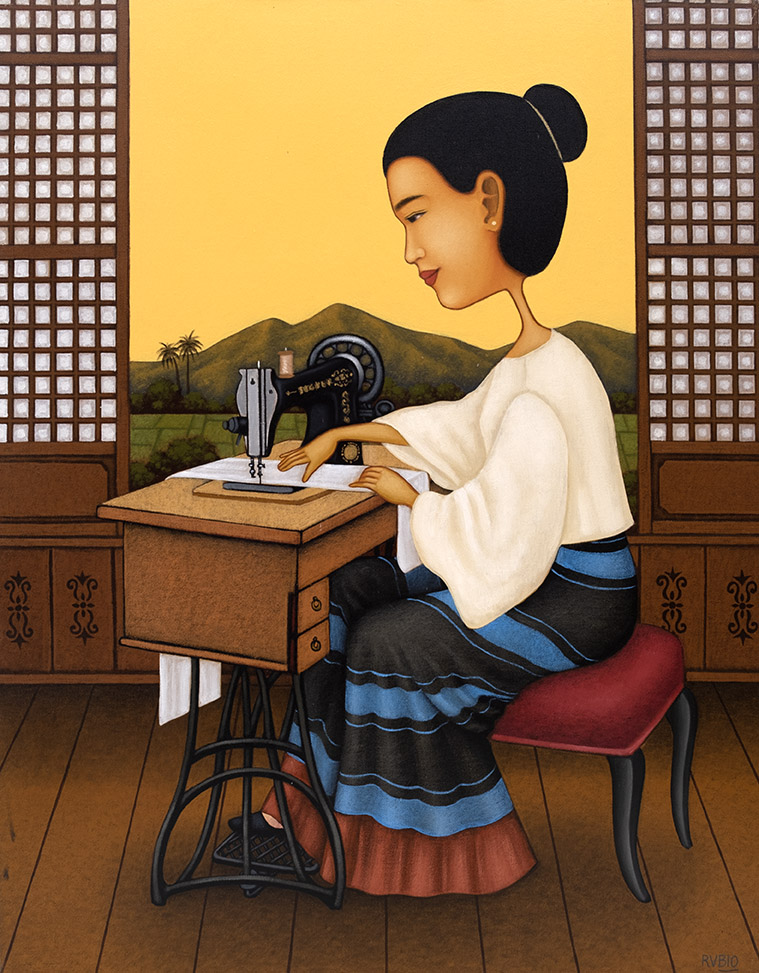
“Although he paints nostalgic scenes depicting our colonial past,” Canete says, “Rubio is painting the Filipino today. They have struck a deep chord of nostalgia among his publics, who recollect from these paintings memories of their recent ancestry, and the nascent space of national becoming.” In short, by presenting the past, Rubio reminds people of the present.

